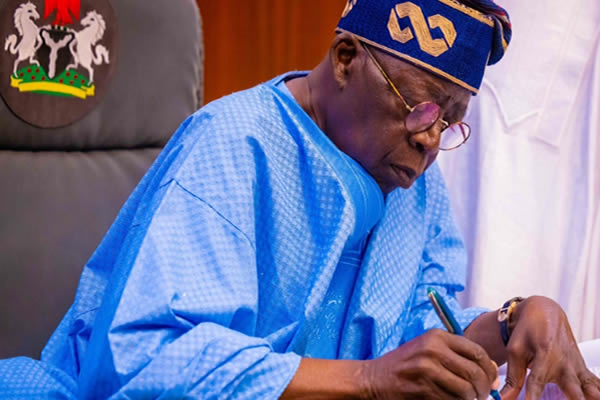By ETIM ETIM
If any evidence was needed to prove the efficacy of President Tinubu’s fiscal reforms, the latest report from the Ministry of Budget & National Planning would suffice. For the period January – August 2025, the federal government collected a total revenue of N20.59 trillion, a 40.5% increase from N14.6 trillion recorded in 2024. Of this, non-oil receipts is N15.69 trillion, representing 75% of the total accruals. The main contributors to the improved earnings were FX revaluation as well as reform-driven processes such as digitized filings, Customs automation, tighter enforcement, and broadened compliance. Customs’ collections were N3.68 trillion in the first half of the year, N390 billion above target and already 56% of the full-year goal. At this rate, the government is expected to achieve its full-year revenue target of N36.35 trillion. These figures do not include crude oil earnings which have continued to fall behind projections largely due to falling oil prices and weak production.
President Tinubu is expectedly excited about the success of his fiscal reforms, and has vowed that the federal government will no longer borrow from local banks. However, external borrowings will continue due to weak FX earnings. Improved fiscal performance means increased revenues to the states and local governments. In July, for example, FAAC shared N2 trillion to the federating units, the highest amount ever. Some states like those in the Niger Delta region now receive up to N40 billion in a month as their share, fuelling a new season of establishing mega projects. Most states have reported that they have also exited domestic borrowing.
The Tinubu administration deserves commendation for addressing the huge fiscal challenges that confronted the nation during the Buhari presidency. The former president was unwilling to make the difficult decisions.
But there’s a limit to what fiscal reforms and increased revenues alone can do. On their own, they cannot stimulate economic development and industrial growth. Unless we pursue a well-designed policy of industrialization and manufacturing with the determination and single-mindedness that other countries did, we will continue to face steep economic challenges. Manufacturing is a key driver of economic growth. A weak manufacturing sector such as ours can limit a country’s ability to achieve rapid and sustained growth. A tax-and-spend policy that does not focus on driving increased production and stimulating exports of manufactured goods will only generate more money for the politicians, while the country remains at the lowest level of development. Tax revenues alone are not enough. The administration should reset its agenda and focus more on promoting agricultural production, food sufficiency and robust industrial development and exports of manufactured goods. Continued reliance on imports will only exacerbate our trade deficits and vulnerability to external shocks. Crude oil price has been trending downwards for months now, and if, for example, it goes down to $30 or less per barrel, we would be in serious trouble in spite of the improved tax revenues. Boosting non-oil exports, especially value-added goods, is key.
Nigeria’s struggling manufacturing sector possess many drawbacks. It’s the reason the economy is not diversified, making it vulnerable to fluctuations in global commodity prices. Its inability to add value to our natural resources, limits the country’s ability to increase exports and generate foreign exchange. Our limited manufacturing capability accounts for the high incidents of multidimensional poverty and inequality in the country, particularly in rural areas where job opportunities are scarce. Without industrial development, the development of skills and expertise needed to drive innovation and growth would be slow, very slow.
Of course, Nigeria has made several attempts at industrialization in the past, but they have been unsuccessful for many reasons, key among which are inconsistent policies and lack of continuity and inadequate infrastructure. Some African countries like South Africa, Morocco, and Egypt have made better progress in developing their industrial bases than Nigeria. It’s time to rethink our strategies. Fiscal reforms alone won’t take us far. Investing in infrastructure, such as energy and transportation networks can help support industrial development. The federal government should therefore do more to improve our rail and road networks. Implementing effective industrial policies, such as support for SMEs and skilling up the workforce through vocational training programs can help foster a robust manufacturing sector.
Nigeria’s manufacturing is dominated by a few entities which depend on imported inputs for production. Many of them have had to exit the country in recent years due to difficulties in sourcing foreign exchange. With insecurity rising and farmers abandoning the fields, we have gone back to the era of massive food importation. President Buhari was able to significantly improve agricultural outputs, almost achieving self-sufficiency in some grains. But President Tinubu had since rolled back many of the initiatives, notably the Anchor Borrowers Program of the CBN that helped propel food production under Buhari. It’s now time to pursue manufacturing, non-oil exports and increased food production. Taxation alone won’t save this country.


